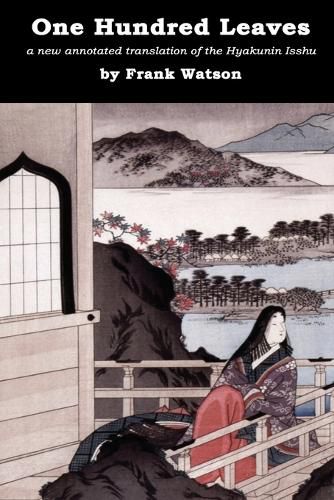Readings Newsletter
Become a Readings Member to make your shopping experience even easier.
Sign in or sign up for free!
You’re not far away from qualifying for FREE standard shipping within Australia
You’ve qualified for FREE standard shipping within Australia
The cart is loading…






This title is printed to order. This book may have been self-published. If so, we cannot guarantee the quality of the content. In the main most books will have gone through the editing process however some may not. We therefore suggest that you be aware of this before ordering this book. If in doubt check either the author or publisher’s details as we are unable to accept any returns unless they are faulty. Please contact us if you have any questions.
The Hyakunin Isshu is a poetry anthology beloved by generations of Japanese since it was compiled in the 13th century. Many Japanese know the poems by heart as a result of playing the popular card game version of the anthology, called karuta. Collecting one poem each from one hundred poets living from the 7th century to the 13th century, the book covers a wide array of themes and personal styles, from love poetry to nature poetry to the poetry of absence and longing. Along with Basho’s haiku, Saigyo’s waka, the Kokinshu (Kokin Waka Shu), The Tale of Genji, The Tale of Ise, The Tale of Heike, the Manyoshu, and The Kojiki, this is among the great classics in Japanese poetry and literature.
One Hundred Leaves is a translation complete with extensive notes, the original Japanese in calligraphic font, the pronunciation, and side-by-side art work beautifully illustrating each poem’s theme.
This poetry anthology contains some of the most famous poets of classical Japanese poetry, including ladies of the Heian court, Ono no Komachi, Izumi Shikibu, Murasaki Shikibu (author of The Tale of Genji), and Sei Shonagon (author of The Pillow Book). Other great poets of Japanese literature within this poetry collection include the compilers of the Kokinshu (Kokin Wakashu), Ki no Tsurayuki, Oshikochi no Mitsune, Mibu no Tadamine, and Ki no Tomonori, and a variety of other classical poets, such as Kakinomoto no Hitomaro, Ariwara no Narihira, Monk Henjo, and Fujiwara no Okikaze.
$9.00 standard shipping within Australia
FREE standard shipping within Australia for orders over $100.00
Express & International shipping calculated at checkout
This title is printed to order. This book may have been self-published. If so, we cannot guarantee the quality of the content. In the main most books will have gone through the editing process however some may not. We therefore suggest that you be aware of this before ordering this book. If in doubt check either the author or publisher’s details as we are unable to accept any returns unless they are faulty. Please contact us if you have any questions.
The Hyakunin Isshu is a poetry anthology beloved by generations of Japanese since it was compiled in the 13th century. Many Japanese know the poems by heart as a result of playing the popular card game version of the anthology, called karuta. Collecting one poem each from one hundred poets living from the 7th century to the 13th century, the book covers a wide array of themes and personal styles, from love poetry to nature poetry to the poetry of absence and longing. Along with Basho’s haiku, Saigyo’s waka, the Kokinshu (Kokin Waka Shu), The Tale of Genji, The Tale of Ise, The Tale of Heike, the Manyoshu, and The Kojiki, this is among the great classics in Japanese poetry and literature.
One Hundred Leaves is a translation complete with extensive notes, the original Japanese in calligraphic font, the pronunciation, and side-by-side art work beautifully illustrating each poem’s theme.
This poetry anthology contains some of the most famous poets of classical Japanese poetry, including ladies of the Heian court, Ono no Komachi, Izumi Shikibu, Murasaki Shikibu (author of The Tale of Genji), and Sei Shonagon (author of The Pillow Book). Other great poets of Japanese literature within this poetry collection include the compilers of the Kokinshu (Kokin Wakashu), Ki no Tsurayuki, Oshikochi no Mitsune, Mibu no Tadamine, and Ki no Tomonori, and a variety of other classical poets, such as Kakinomoto no Hitomaro, Ariwara no Narihira, Monk Henjo, and Fujiwara no Okikaze.